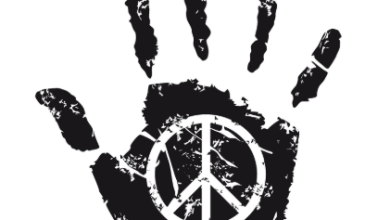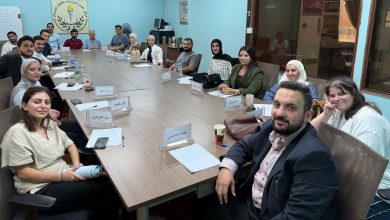Reflections on the OHCHR Geneva Meeting: “Trafficking in Children on the Rise: Immediate Action Required”
Written by Mohammed Mahmoud

The ongoing worldwide issue of child trafficking requires unified global efforts to combat it effectively. New information released by the United Nations Office on Drugs and Crime indicates that children make up 38% of all identified victims of trafficking globally. This highlights the vulnerability of Children to exploitation. Factors such as conflict and economic uncertainty worsen the dangers faced by children and contribute to their increased susceptibility to being exploited by traffickers.
ACHRS joined the recent OHCHR meeting, “Trafficking in Children on the Rise: Immediate Action Required”, on 14th of March 2025, which was led by Dr. Najat Maalla M’jid, the Special Representative of the Secretary-General on Violence against Children. In her opening remarks, Dr. Najat said that acting differently and urgently at national, regional, and global levels is more important than ever. She also pointed out how conflict, displacement, and economic hardship are putting more children at risk. The session highlighted the urgent need for stronger and more coordinated international action to protect vulnerable children from trafficking.
A recent collaboration, between the Office of the High Commissioner for Human Rights and Ms. Virginia Gamba, the Special Representative of the Secretary-General for Children and Armed Conflict, sheds light on how armed conflicts have an impact, on child trafficking issues Instances of children being abducted or forced into recruitment and exploitation are growing in conflict areas demanding global action to protect their well-being and rights.
Sophie Otiende, a survivor, advocate and CEO at the Global Fund to End Modern Slavery (GFEMS) reminded everyone that survivors are not just victims they are also part of the solution and breaking the stigma surrounding their experiences is key of justice. In her words:
“I am a survivor, but I’m also an expert. I’m a teacher, I’m poet, I do policy work, I write curriculum. There is so much that survivors can do and contribute.”
Her message was supported by Dr.Najat Maalla, which said the focus should be on visibility, contribution, it’s a crime but also a great violation of human rights, investing in people and services as well as fair justice. Both speakers emphasized the need to involve survivors in making policies and protecting children.
The International Labor Organization reports that millions of children are trapped in forced labor, while traffickers take advantage of weak laws and poor enforcement. This kind of exploitation makes about $236 billion a year, a 37% jump over the last 10 years. These profits keep the cycle going, making stronger laws and better enforcement a top priority.
At the same OHCHR meeting, Mr. Guillaume Landry, Executive Director of ECPAT International, spoke about the dangers of online child exploitation and the use of technology. He warned that rural communities are often overlooked, even though children there are heavily targeted online. He also called for more involvement from banks and transportation companies to help identify and stop traffickers. Mr. Landry pointed to Indonesia and Peru, where financial monitoring has already helped fights trafficking.
In the UK, recent findings from ECPAT UK and the Independent Anti-Slavery Commissioner show that child trafficking cases have jumped 138% in just five years. Yet many of these children still don’t get the protection they need. The report highlights gaps in the law and support systems, which must be fixed immediately.
As for the new technology is making it easier for traffickers to find and exploit children online. To stop this, countries need to work together, create digital solutions, and enforce stronger online protections.
The Amman for Human Rights Studies ACHRS, encourages governments, organizations, and all sectors to take action immediately without hesitation, that means creating policies based on human rights, building stronger social protections, training law enforcement to better collaboration across borders, and strengthening whistleblowing protections for those who report abuse or expose trafficking networks. while this is happening only by going through international cooperation and empowering survivors and to make sure predators and traffickers held accountable then only we might break the cycle of trafficking, vulnerable innocent children everywhere in the world deserves safety, justice and chance to live free from fear, shame, and the silence the traffickers thrives on.




